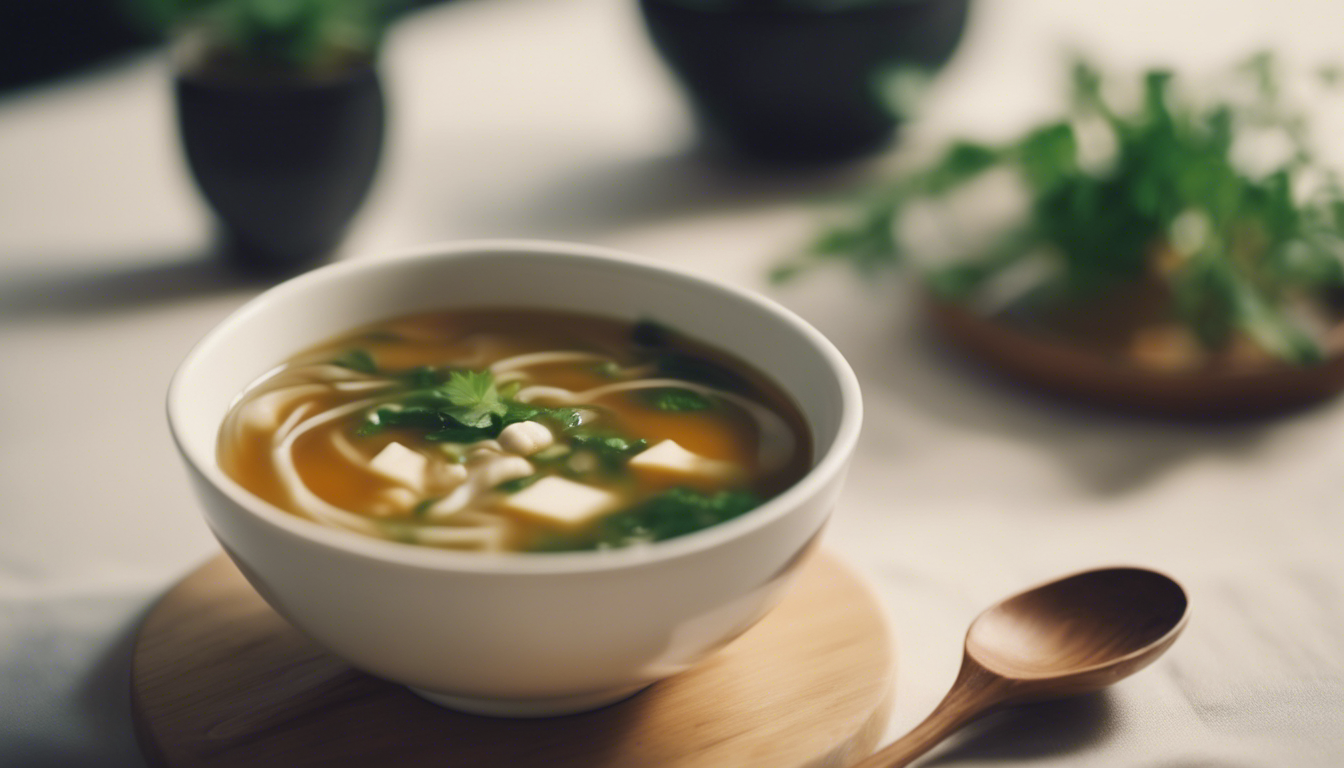
Vegan Miso Soup is a delightful and flavorsome dish that has gained immense popularity among vegans and non-vegans alike. This traditional Japanese soup is not only delicious, but it also offers several health benefits and fits perfectly into a vegan diet. Made with simple yet powerful ingredients, vegan miso soup is a nourishing and satisfying option for anyone seeking a hearty and wholesome meal.
Flavorful and Rich in Umami
The key to the delectable flavor of vegan miso soup lies in its star ingredient – miso paste. Miso paste is produced by fermenting soybeans with salt and koji, a type of mold. This fermentation process results in the development of complex flavors, including umami, which adds a rich and savory taste to dishes.
Umami, often referred to as the fifth taste after sweet, sour, salty, and bitter, can be described as a pleasant and savory essence that enhances the overall taste of a dish. It provides a depth of flavor that is unique to miso soup, making it an exceptional culinary experience.
Ingredients
To create vegan miso soup, you will need the following ingredients:
- Miso Paste: Choose a high-quality miso paste that suits your taste preference. There are several varieties available, such as white, red, and mixed. Each type offers its own distinct flavors and aromas.
- Dashi: Dashi is a Japanese soup stock commonly used as a base in many Japanese dishes. Traditional dashi is typically made with bonito flakes (fish), kombu (seaweed), or both. However, for a vegan version, you can use kombu dashi or mushroom dashi to achieve a similar depth of flavor.
- Tofu: Soft or silken tofu is traditionally used in miso soup. It adds a creamy texture to the soup and provides a source of plant-based protein.
- Vegetables: You can add a variety of vegetables to your miso soup, such as sliced mushrooms, carrots, scallions, spinach, or any other veggies of your preference. These additions contribute to the nutritional value of the dish.
- Noodles (Optional): If you prefer a heartier soup, you can include cooked noodles, such as udon or soba, to make it more filling and satisfying.
Preparation
Here’s a simple yet delicious recipe for vegan miso soup:
- Prepare your desired amount of dashi according to your chosen method. If using kombu dashi, soak a piece of kombu in water overnight or for at least 30 minutes. Then, gently simmer it in a pot until the liquid has extracted all the flavors of the seaweed. Remove the kombu before proceeding. If using mushroom dashi, simmer dried mushrooms in water for about 15-20 minutes and strain.
- Once you have your dashi ready, bring it to a gentle simmer in a pot.
- Add your choice of vegetables to the simmering dashi. You can use sliced mushrooms, carrots, scallions, or any other vegetables you prefer. Simmer until the vegetables are cooked to your desired tenderness.
- Cut the tofu into small cubes and add it to the pot. Let it simmer for a couple of minutes until heated through.
- In a separate bowl, mix miso paste with a small amount of hot water to dissolve it and create a smooth paste. This step prevents the miso from clumping when added to the soup.
- Take a ladleful of the simmering broth and add it to the miso paste mixture. Stir until the miso is fully incorporated and smooth.
- Turn off the heat, and slowly pour the miso mixture back into the pot while gently stirring the soup. This ensures that the miso blends evenly with the broth.
- Avoid boiling the soup after adding the miso, as high heat may destroy some of its beneficial enzymes and alter its flavor.
- Finally, taste the soup and adjust the seasoning if necessary by adding more miso paste.
Health Benefits
Vegan miso soup not only satisfies your taste buds but also provides several health benefits. Here are some of the advantages of incorporating this delightful soup into your vegan diet:
- Nutrient-Rich: Miso paste is a good source of essential nutrients, including protein, vitamins, and minerals. It also contains beneficial probiotics due to the fermentation process, which can promote a healthy gut microbiome.
- Boosts Immunity: Miso paste is rich in antioxidants and may have immune-boosting properties. Consuming miso soup regularly can help support your immune system and protect your body against illnesses.
- Improves Digestion: The enzymes produced during miso fermentation can aid digestion and enhance nutrient absorption. Including miso soup in your diet can contribute to better digestive health.
- Reduces Risk of Chronic Diseases: Some studies suggest that consuming miso regularly may help reduce the risk of certain chronic diseases, such as cardiovascular disease and certain types of cancer.
In conclusion, vegan miso soup is a truly delightful dish that offers a wide range of flavors and benefits in a vegan diet. Its umami-rich taste, simple yet powerful ingredients, and numerous health advantages make it an excellent addition to your culinary repertoire. Whether enjoyed as a comforting meal on a chilly day or as a regular part of your vegan lifestyle, miso soup will surely leave you feeling nourished and satisfied.